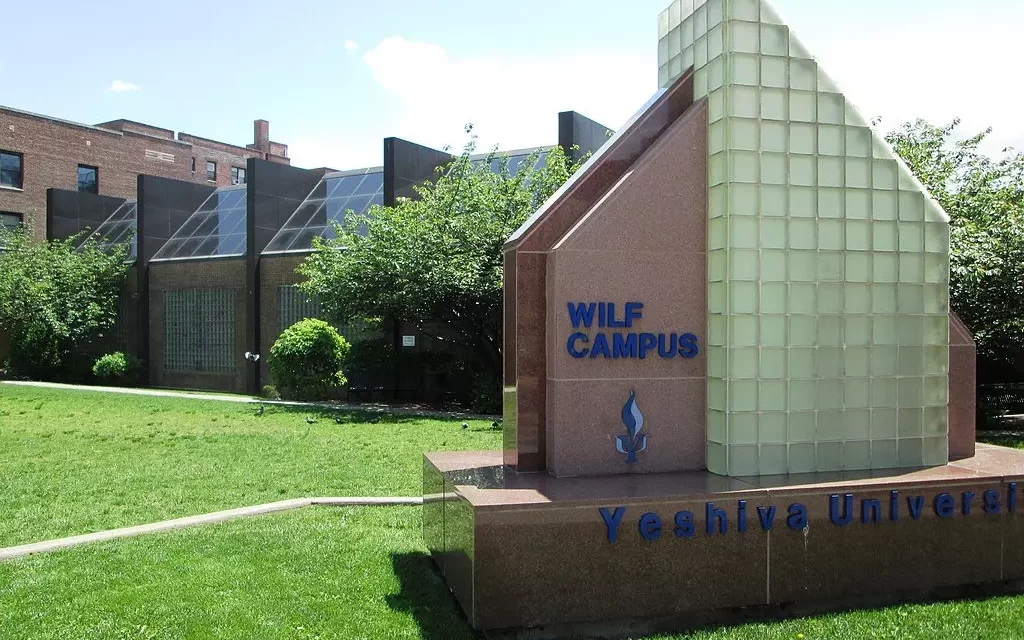WASHINGTON (BP)—The U.S. Supreme Court has denied—at least for now—a request by the country’s oldest Jewish university that the justices block enforcement of a judicial requirement it must grant recognition to a gay and transgender student group.
In a 5-4 order Wednesday, Sept. 14, the high court rejected Yeshiva University’s emergency application for a stay while it appeals a New York court’s decision that the school must officially recognize YU Pride Alliance. The justices said the denial was based on the university’s failure to seek relief from the mandate that may be available in state courts. If Yeshiva receives “neither expedited review nor interim relief” from courts in New York, it may return to the Supreme Court, according to the order.
In their order, the justices vacated Associate Justice Sonia Sotomayor’s Sept. 9 stay of the lower-court order against Yeshiva.
Becket, a religious liberty organization that is representing Yeshiva in the case, said it would comply with the order. “We will follow the Court’s instruction,” said Eric Baxter, vice president and senior counsel at Becket, in a written statement.
The five-member majority in the high court’s order consisted of Chief Justice John Roberts and associate justices Sotomayor, Elena Kagan, Brett Kavanaugh and Ketanji Brown Jackson. Associate Justice Samuel Alito filed a dissent in which associate justices Clarence Thomas, Neil Gorsuch and Amy Coney Barrett joined.
Brent Leatherwood, president of the Southern Baptist Ethics & Religious Liberty Commission (ERLC), told Baptist Press, “While I understand the procedural nature of the court’s rationale, it is unacceptable that this institution may be forced to violate its deeply held beliefs about gender and sexuality.
“New York state courts should move quickly to ensure that the religious freedom of Yeshiva is protected because, as Justice Alito wrote in the dissent, considered on the merits, this is not a close call and Yeshiva should prevail,” he said in written comments.
The ERLC joined nine other religious organizations in a Sept. 2 friend-of-the-court brief that asked the Supreme Court to block the state court order and protect Yeshiva’s right to act according to its beliefs.
In its order, the Supreme Court said Yeshiva has at least two other routes it can take in New York courts to gain a stay of the judicial order requiring recognition of YU Pride Alliance. The school may ask state courts “to expedite consideration of the merits of their appeals,” the justices said. It also may file a motion with the Appellate Division for permission to appeal to the New York Court of Appeals the denial of stay in the lower court and seek expedited consideration of the motion, according to the order.
The Supreme Court of New York County issued a permanent injunction June 14 against Yeshiva and ordered the school to grant the complete privileges to YU Pride Alliance that it offers to other student organizations. The court ruled Yeshiva is not a religious corporation under state law. On Aug. 23, the New York Supreme Court, Appellate Division, denied Yeshiva’s request that it block enforcement of the lower court’s order.
In his dissent, Alito wrote, “The First Amendment guarantees the right to the free exercise of religion, and if that provision means anything, it prohibits a State from enforcing its own preferred interpretation of Holy Scripture. Yet that is exactly what New York has done in this case, and it is disappointing that a majority of this Court refuses to provide relief.
“The loss of First Amendment rights for even a short period constitutes irreparable harm… and the appellate process in the state courts could easily drag on for many months.”
The First Amendment to the U.S. Constitution bars government establishment of religion and guarantees religious free exercise.
Yeshiva University, a 136-year-old that has more than 7,400 undergraduate and graduate students on four campuses, says education at the school is based on five Torah values – truth, life, infinite human worth, compassion and redemption. Torah refers to Jewish instruction, specifically that of the Pentateuch, the first five books of the Bible.
Yeshiva says it welcomes, provides support to and seeks to protect lesbian, gay, bisexual, transgender and queer (LGBTQ) students, but it refused to grant official recognition to the YU Pride Alliance in 2020. An alumni-student coalition sued the school.
The organizations that signed onto a brief with the ERLC were Houston Baptist University, Cedarville University, Liberty University, Biola University, Wheaton College, the U.S. Conference of Catholic Bishops, the Archdiocese of New York, The Church of Jesus Christ of Latter-day Saints and Brigham Young University. Other Christian associations, as well as various Jewish organizations, also filed briefs that urged the Supreme Court to issue a stay.
According to their brief, the ERLC and the other organizations differ in multiple ways but are united in this case “because their ability to serve and to structure their ministries as their beliefs require depends upon the protections of the First Amendment.” The lower-court decision and the appeals court’s refusal to stay the ruling constitute “a grave and pressing threat to religious liberty that warrants (the Supreme Court’s) immediate action,” they said in the brief.
Photo from Wikimedia Commons





